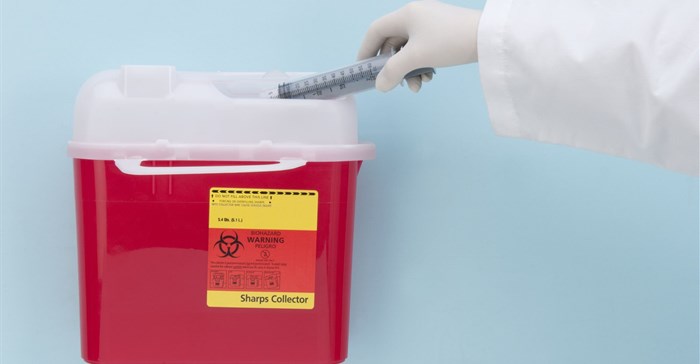
Top stories






More news


Marketing & Media
Ads are coming to AI. Does that really have to be such a bad thing?














A study by researchers from the University of Venda concludes that healthcare risk waste is not being efficiently managed in Vhembe District in Limpopo. The report was based on 229 responses from managers and staff at 15 healthcare facilities across the district.
Deficiencies in the management of medical waste was attributed more to a lack of awareness and training of medical staff rather than purposeful negligence.
The management of healthcare risk waste (HCRW) is governed by the National Environmental Management Waste Act of 2008, which places a particularly burdensome responsibility on any facilities or practitioners that produce medical waste. This includes doctors and clinicians, and hospitals and medical facilities of all descriptions.
Specifically, the law says that this duty of care exists from the source all the way to disposal.
For instance, a clinic cannot absolve itself of responsibility once it has been handed to a waste management company. The clinic is held responsible right up to final disposal even if it has not physically dealt with or disposed of the materials.
This means that a medical facility has to properly document all its HCRW from the time that it is generated, through the transportation and up to its eventual disposal. Figures from the Department of Environmental Affairs shows that some 50,000 tonnes of medical waste was treated in 2018 at the 18 licensed treatment facilities around the country.
HCRW covers all types of organic and non-organic materials that range from swabs, bedding, bandages and plasters to human tissues, organs, and body parts. Other forms of waste include instruments (broadly called sharps), such as needles, scalpels, razors and pipettes.
Radiological materials used in the treatment and diagnosis of cancer are an obvious candidate for special treatment, while expired, unused, spilt or contaminated pharmaceutical products and drugs also cannot be disposed of with general waste.
“The biggest challenge for the healthcare sector is being able to track every piece of waste they generate. This does not have to be done down to the individual material or organic waste, but the regulations do stipulate that they should be able to identify the source and type of HCRW down to the kilogram," says Johan van den Berg, MD of Averda South Africa.
“Healthcare risk waste is rightly considered a major threat to the safety of communities if it’s not properly handled,”“We haven’t had any major epidemics in South Africa related to negligence or exposure to such risks, for which we should be grateful," he says.